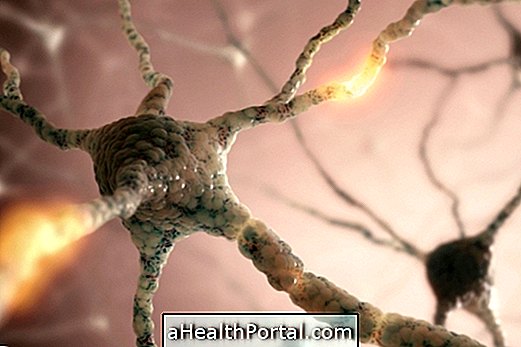Autoimmune encephalitis is an inflammation of the brain that arises when the immune system attacks the brain cells themselves, impairing their functioning and causing symptoms such as tingling in the body, visual changes, seizures, or shaking, for example, that may or may not cause sequelae.
This disease is rare, and can target people of all ages. There are different types of autoimmune encephalitis because they depend on the type of antibody that attacks the cells and the area of the affected brain. Some of the main examples are anti-NMDA encephalitis, acute disseminated encephalitis or limbic encephalitis, for example. arise due to a neoplasm, after infections or without an informed cause.
Although autoimmune encephalopathy has no specific cure, it can be treated with the use of some medications, such as anticonvulsants, corticosteroids, or immunosuppressants, for example, that relieve symptoms, reduce inflammation, and help restore full brain function.

Main symptoms
Since autoimmune encephalitis affects the functioning of the brain, the symptoms vary depending on the region affected. However, the most common signs include:
- Weakness or sensitivity changes in various parts of the body;
- Loss of balance;
- Difficulty speaking;
- Involuntary movements;
- Vision changes, such as blurred vision;
- Difficulty in understanding and memory changes;
- Palate changes;
- Difficulty sleeping and frequent agitation;
- Mood or personality changes.
In addition, when communication between neurons is greatly affected they can also arise as hallucinations, delusions or paranoid thoughts.
Thus, some cases of autoimmune encephalitis may be misdiagnosed as a psychiatric alteration of the type schizophrenia or bipolar disorder. When this happens, the treatment is not done properly and the symptoms can get worse over time or show no significant signs of improvement.
How is the diagnosis made?
To make a correct diagnosis of this disease, it is important to consult a neurologist. Besides evaluating the symptoms, it is also important to do other diagnostic tests, such as cerebrospinal fluid scan, magnetic resonance imaging (MRI) or electroencephalogram to detect brain lesions that indicate autoimmune encephalitis.
Blood tests can also be done to determine if there are any antibodies that can cause this type of change. Some of the major autoantibodies are the anti NMDAR, anti VGKC or anti GlyR, for example, specific for each type of encephalitis.
In addition, to investigate autoimmune encephalitis, the physician also needs to rule out other more frequent causes of brain inflammation, such as viral or bacterial infections.

How is the treatment done?
Treatment for autoimmune encephalitis begins with one or more of the following types of treatment:
- Use of corticosteroids, such as Prednisone or Hydrocortisone, to decrease the response of the immune system;
- Use of immunosuppressants, such as Rituximab or Cyclophosphamide, for more potent reduction of the action of the immune system;
- Plasmapheresis, to filter blood and remove excess antibodies that are causing the disease;
- Injections of immunoglobulin, as it replaces the binding of harmful antibodies to brain cells;
- Removal of tumors that may be the source of the antibodies that cause encephalitis.
Medications may also be needed to reduce symptoms such as anticonvulsants or anxiolytics.
In addition, it is important that the person affected by autoimmune encephalitis undergoes rehabilitation, and there may be a need for physical therapy, occupational therapy, or psychiatric follow-up to reduce symptoms and reduce possible sequelae.
What can cause encephalitis
The specific cause of this type of encephalitis is not yet known, and in many cases it appears in healthy people. It is also believed that autoantibodies can originate after some types of infection, by bacteria or viruses, which can lead to the production of inappropriate antibodies.
However, autoimmune encephalitis may also appear as one of the manifestations of a distant tumor, such as lung or uterine cancer, for example, called paraneoplastic syndrome. Therefore, in the presence of an autoimmune encephalitis, it is necessary to investigate the presence of cancer.























